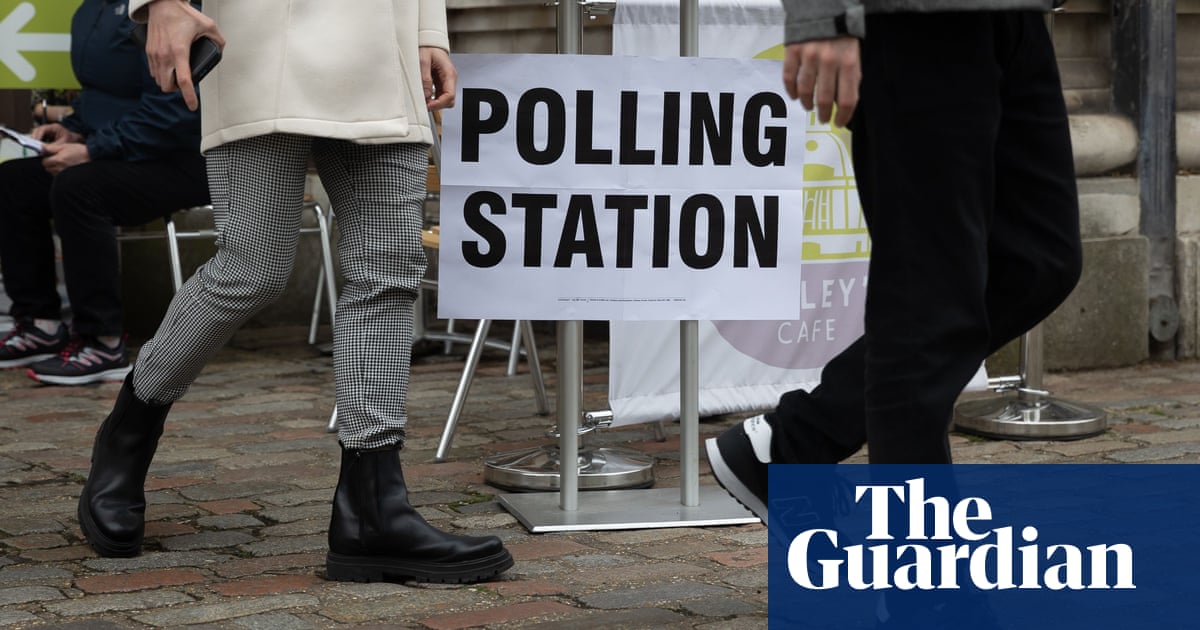
Polly Toynbee: Does Boris Johnson survive this? Labour must certainly hope so
Symbols matter, so Labour’s victories in Westminster (wow!), Wandsworth (ha!) and Barnet (speaks to progress on antisemitism) give a fine fillip to the party’s fortunes. Wins in Cumberland and Southampton augur well. It’s too early in the day to know how close Labour is to becoming the biggest party at the next election, but the Liberal Democrat revival gnawing at Tory votes helps.
Conservative councillors went over the top defenceless, lambs to the slaughter. But they deserve every loss, after tolerating intolerable 50% cuts to their council budgets without rebelling against their Westminster party. They blame their leader’s collapsed ratings and the cost of living crisis, but don’t pity Tories reaping their own whirlwind: their MPs and local parties cynically chose a rogue prime minister, knowing his egregious unfitness for office. Now he’s their loser, Tory ex-council leaders line up to call for his head.
If final results suggest Brexit divides still lurk, especially in the north, the Tories may keep Johnson hoping he can rekindle old passions. Labour should hope they do, as his negatives far outweigh the dying embers of Brexit passions. However, fire in the belly is what the official opposition lacks right now: time to let the frontbench off their tight leash of disciplined messaging for more forthright speaking from the heart.
Polly Toynbee is a Guardian columnist
James Johnson: The Tories are in denial about the scale of the problem they face
Faced with the results today, some Conservatives are saying all is well. This is wrong. Of course, these results are not a sign of a seismic Labour recovery, or a Blair-like storming to power for Keir Starmer. Though Labour made gains, they were not enough to win back areas like those it lost back in 2005 and 2010, like Nuneaton and Peterborough.
But Labour does not need a Blair-sized victory to deprive the Conservatives of power: it can do so while being behind on votes, come a general election.
The Conservative vote is in trouble on two fronts. Most stark is the serious attrition in London and the south, especially in areas with more educated and middle-class voters: to go backwards by so much in these areas spells serious trouble for southern marginals at the next election. To simply write off a Labour advance with the middle classes as Starmer being a “metropolitan elite” – as one Tory source has – is to misunderstand the Conservative victory in 2019, where the party was able to carry southern seats as well as northern ones. And there are plenty of middle-class voters in the “red wall” too.
Nor were the results good for the Conservatives in the red wall. Again, key here are the 2018 council elections, not the 2019 general election. Labour standing still (as it did in Hartlepool), making gains (Dudley), or even going slightly backwards (Sandwell) is a good result for the party. Why? Because in 2018 it held the northern and Midlands seats that Boris Johnson went on to win a year later. In other words Labour is currently doing as well as it did before it “lost” the red wall in 2019.
Today, some Conservatives – whether wilfully or not – are in denial about the scale of that problem, especially those most loyal to No 10.
But since January, the interests of Boris Johnson and the Conservative party have become disconnected. If Conservatives want to win again at the next general election, they will need to come to that realisation – or risk sleepwalking into national defeat.
James Johnson is a former Downing Street pollster who worked under Theresa May and now runs JL Partners
Amna Ahmad: It’s clear the Lib Dems offer the alternative that many voters are looking for
At the time of writing, Liberal Democrats across the country are jubilant. Gains have been made in traditionally Conservative and Labour areas in the capital, such as Merton and Brent, with astonishing wins in places such as Richmond and Kingston-upon-Hull. This follows on the heels of “blue wall” byelection wins in Chesham and Amersham and North Shropshire in 2021. More local election results are still to be announced, but we are delighted with the wins.
It is usually foolhardy to directly equate local and national politics, but this time it felt different. Voters told me that they were worried about rising inflation, spiralling energy costs and, in the wake of Partygate, couldn’t help but feel that the Conservative cabinet was only looking out for itself. Councillors – current, new and former – have told me that cash is desperately needed from central government to do more for those most in need – but that local government is seen as a low national priority. I’ve noticed ethnic minority communities feeling let down by promises of a Brexit “dividend” that never transpired, and anecdotal evidence of particularly low voter turnout among these groups. It’s clear that the Lib Dems provided an alternative for many thousands across the country.
Neither Boris Johnson nor Keir Starmer can claim an outright win today, despite reasonable results in parts of the country. This makes the next 12 months, in the runup to the next local elections and a rumoured general election, a critical time. Today’s results show us that people are looking for a new political home. Expect more upsets.
Amna Ahmad is vice-president of the Liberal Democrat party
Owen Jones: Labour bet the farm on Starmer – and despite the ‘long Corbyn’ excuse, he is not enough
The political conditions for Labour could hardly be more fortuitous. We have a Tory government enveloped in a scandal over systematically breaking its own laws during a national emergency, riddled with sleaze, led by a man whose own admirers acknowledge is a stranger to honesty, and overseeing the worst squeeze in living standards in modern history. In midterm, too, voters are well-disposed to give the incumbents a kicking.
First, Labour’s good news: the Tories have collapsed in London. Wandsworth, the laboratory of Thatcherism; Westminster, whose former leader Shirley Porter from the 1980s was best known for gerrymandering; and Barnet are now all red. A long-term trend must be acknowledged in a city with an increasingly young, diverse, working-class population defined by a housing crisis.
But piling up votes in the capital is no compensation for going backwards in England. “Long Corbyn” is given as the reason by Labour politicians and commentators, a bizarre excuse for doing worse in English boroughs than Keir Starmer’s predecessor did in 2018. The Labour leader’s brazen discarding of his leadership pitch – radical policies fused with party unity – in favour of a vision-free offer and relentless punching left has not delivered the electoral goods.
The rise of the Greens is just one sign that marginalised progressive voters were already looking elsewhere. Perhaps a cost-of-living crisis set to rob the pockets of millions is Starmer’s lifeboat, allowing him to win by default without offering any inspiring plan for the country he seeks to lead. Maybe, but Labour have bet the farm on a leader as devoid of principle as he is of charisma, mopping up purely because of Tory failure. It is clearly not enough.












